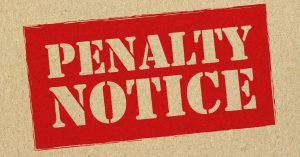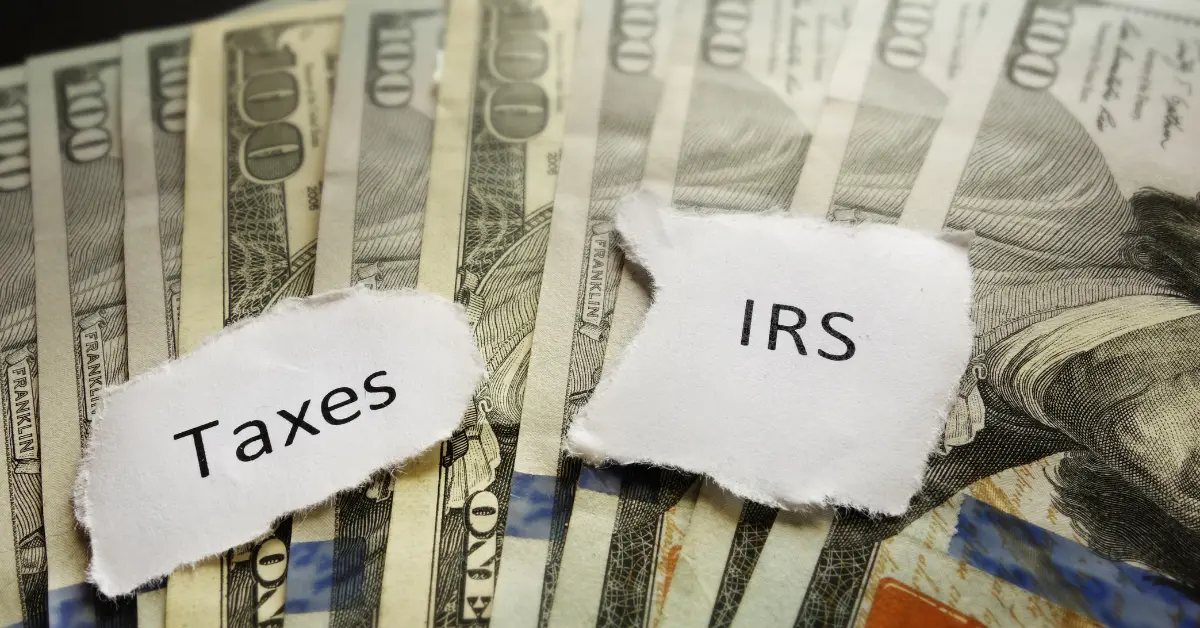Key Takeaways:
- CP3219A Notice: It means the IRS noticed your income doesn’t match their records.
- Why It Happens: Maybe you forgot to report some money you made or missed including some documents.
- What to Do First: Check what’s missing, gather any needed info, and remember you have 90 days to reply.
- Getting Help: A tax professional can make fixing this easier for you.
- Gather Proof: Find any documents that show your income and taxes already paid.
- If You Disagree: You can explain your side to the IRS with evidence.
- Why a Tax Pro Helps: They know how to handle these notices and can argue on your behalf.
- Fix Your Tax Return: If you made a mistake, you might need to update your tax return with the correct info.
- Going to Court: If you can’t resolve it with the IRS, you might end up in Tax Court. A pro can help you here too.
Getting a CP3219A notice from the IRS can throw you for a loop. Receiving this correspondence indicates a discrepancy between your declared earnings and the information third-party sources have shared with the tax authorities. But, don’t worry; we’re here to help guide you through it.
In this blog, you’ll learn why these notices are sent out and how to effectively respond. We’ll cover essential steps like completing missing forms and appealing any taxes or penalties proposed by the IRS. Additionally, we’ll explore the benefits of enlisting expert tax help to swiftly tackle CP3219A complications.
Understanding your rights is also crucial when dealing with such notices, including how to petition in Tax Court if necessary. Stick around as we unpack all these aspects to give you clarity on navigating through CP3219A smoothly.
Understanding the CP3219A Notice and Its Importance

If you’ve received a CP3219A notice from the IRS, it might feel like someone just handed you a puzzle with half the pieces missing. The CP3219A notice serves as an crucial alert, highlighting a mismatch between the earnings third parties have documented and the figures you’ve reported in your tax filings.
Why Did I Receive a Notice CP3219A?
The heart of the matter often lies in missing information or unreported income. Think RSUs (Restricted Stock Units), ESPPs (Employee Stock Purchase Plans), or those brokerage statements that slipped through the cracks. The IRS gets its data from various sources, and if something they have doesn’t match up with your filed tax returns, bingo—you get mail.
This isn’t random bad luck; it’s part of an intricate system designed to keep things fair and square. When employers send out W-2 forms or banks submit 1099s detailing interest earned, this info feeds into an extensive database that flags discrepancies against individual income tax returns filed by taxpayers like us.
Immediate Steps to Take After Receiving CP3219A
Your first move should be to take a deep breath—panic has never solved anything—and then start gathering evidence for your side of the story. If indeed some items were missed on your original submission, completing these forms correctly can help set things straight.
An even more critical step is knowing your deadlines. You’ve got 90 days to respond before additional taxes are assessed. Yes, Uncle Sam works fast when he wants his money but fear not because a carefully prepared response can make all the difference in avoiding further penalties—or at least minimizing them.
Seeking Professional Assistance for CP3219A Resolution
Navigating these waters alone could be likened to fixing plumbing based solely on YouTube tutorials—possible but fraught with potential mishaps. Professionals offer audit defense strategies tailored specifically towards resolving issues highlighted by notices such as CP3219A effectively.
Navigating Through Documentation for a CP32119 Response
Gathering essential documents becomes paramount here—from previous years’ brokerage statements showing investment incomes or losses—to receipts related to retirement account withdrawals possibly overlooked previously.
It’s akin to walking back through financial transactions memory lane, but instead of strolling, you’re on a mission to ensure no stone is left unturned in your quest for an accurate and beneficial tax return.
Immediate Steps to Take After Receiving CP3219A
Completing Missing Forms
The first step is about bringing everything into focus by completing any missing forms. This could mean gathering additional tax documents that slipped through the cracks—maybe an overlooked 1099 form or those brokerage statements that didn’t make it into your initial filing.
Sometimes, life gets hectic, and things like RSUs or ESPPs from work benefits might have been forgotten. This isn’t just busywork; it’s crucial for rectifying discrepancies highlighted in the notice.
To smooth out these bumps, amending your return can be a lifeline. Silver Tax Group can guide this process, making sure every document reflects reality accurately and avoids further complications with Uncle Sam.
Formally Appealing Tax and Penalties
If after reviewing the CP3219A notice you believe Mistake Central has made its way to IRS headquarters (hey, we’re all human), don’t sweat—the right to challenge their findings is yours for the taking. You’ve got 90 days upon receiving this letter to wave a red flag via an appeal if needed but remember ticking clocks wait for no one.
An appeal involves drafting up some solid arguments against proposed taxes and penalties outlined by our friends at the IRS in Notice CP3219A—a sort of “let’s agree to disagree” situation backed by evidence on why adjustments should be considered nullified or reduced.
This isn’t throwing darts blindfolded; instead think of yourself assembling an A-team where each member (document) plays a critical role in proving points effectively so clarity wins over confusion.”
To navigate these choppy waters successfully without capsizing under stress, a professional tax advisor, who eats complex tax codes for breakfast might be what stands between sinking ships versus sailing smoothly towards resolution harbor.
Don’t underestimate reaching out—they’re more than ready help chart course through stormy audits appeals alike ensuring voice heard understood loud clear throughout entire ordeal.
Additional Actions to Take When You Receive a CP3219A Notice
Audit Defense: Your Shield Against Surprises
Facing the IRS alone feels akin to showing up at a duel with a toothpick—it’s hardly ideal. Professionals armed with Silver Tax Group expertise offer robust audit defense, turning what could have been an ordeal into something manageable.
They bring to the table years of experience in handling similar cases, making sure that every document submitted is accurate and every step taken is calculated.
The right professional doesn’t just react; they act preemptively, using their knowledge of common triggers for such notices—including missing RSUs or ESPPs—to ensure all bases are covered before submitting any response.
Navigating Through Amending Returns
If solving this puzzle requires amending returns or negotiating penalties down through reasonable cause or First Time Abate (FTA) policies, professionals know exactly how to navigate these waters. By mastering the intricate web of tax regulations, they adeptly identify the modifications that bolster your position and select the reductions that lessen monetary repercussions.
This guidance becomes invaluable especially when dealing with areas where taxpayers commonly stumble—like properly filling out Form W-7 or ensuring all applicable penalties are accounted for accurately.
Petitioning Tax Court
Sometimes dialogue fails, and battle lines need drawing—that’s when having seasoned pros by your side pays off most significantly during petition filing within U.S Tax Court’s strict deadlines post-receipt of Notice CP3219A. With expert help from tax professionals and crafting compelling arguments backed by solid evidence turns daunting legal challenges into winnable battles against assessed deficiencies.
Professionals well-versed in court proceedings demystify processes surrounding petitions while strategizing best approaches tailored specifically towards individual circumstances—a personalized touch DIY solutions simply cannot match.
The Bottom Line
Dealing with a CP3219A notice can feel overwhelming. But remember, you’re not alone in this journey. We’ve walked through the essentials: understanding why you received it, immediate steps to rectify it, and seeking expert help.
Navigate paperwork like a pro. Gather your documents carefully; they are your best defense. Don’t ignore deadlines – timing is everything when responding to the IRS.
Lean on professionals if things get tricky. Experts possess the knack for unraveling intricate tax dilemmas, guiding you safely around potential hazards.
Your rights matter here too. Knowing them empowers you to take informed actions, perhaps even contesting in Tax Court if needed.
Amidst everything, it’s crucial to remain serene and well-arranged. With these insights on handling CP3219A notices, taking control becomes simpler than it seems at first glance. For more information or to work with a seasoned tax professional, visit Silver Tax Group today.
Frequently Added Questions
What is a CP3219A Notice and Why Did I Receive It?
A CP3219A Notice is an IRS alert for discrepancies between reported income and their records, often due to unreported income or errors. It requires your response to correct these discrepancies.
What Are the Immediate Steps I Should Take After Receiving a CP3219A Notice?
Review the notice to understand the discrepancy, gather supporting documents or information, and respond within the 90-day window to avoid additional penalties.
How Can a Tax Professional Help Me with a CP3219A Notice?
A tax professional can assist in reviewing the notice, organizing supporting documentation, and communicating with the IRS to resolve the discrepancy efficiently.
What Happens If I Disagree with the CP3219A Notice?
If you disagree, provide evidence and documentation to support your case and submit your response within 90 days to challenge the IRS's findings.
Can I Amend My Tax Return If I Made a Mistake?
Yes, amending your tax return with the correct information can help rectify the discrepancy highlighted by a CP3219A notice and may prevent additional penalties.








